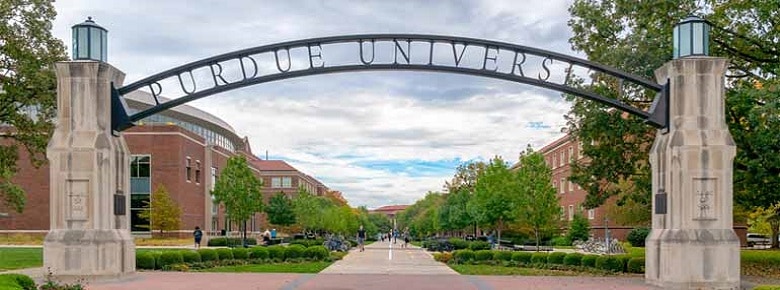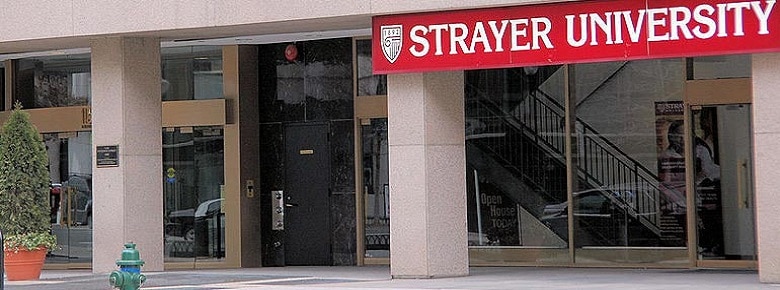There are many colleges that don’t require letters of recommendation. Some colleges don’t require them in order to streamline the admissions process.

Other schools may try to avoid any unnecessary subjectivity in the admissions process.
Editorial Listing ShortCode:
In short, while it is common for a school to request one or more reference letters, just as there are colleges that don’t require SAT or ACT scores, you can also find and apply to universities that don’t require letters of recommendation.
Do All Colleges Require Letters of Recommendation?

No, not all colleges require letters of recommendation during the application process. Many schools often require one or more letters of recommendation, and college reference letters can provide unique perspectives about an applicant. It’s a fact, though, that a number of colleges don’t require applicants to submit a letter of rec.
It’s quite common for schools to ask applicants for some form of biographical information, usually in the form of a personal statement, personal essay, or statement of purpose.
Editorial Listing ShortCode:
On the other hand, college letters of recommendation and admissions interviews, while common enough, are not required by all schools. Some schools don’t accept them, and some schools make them optional. In fact, there are even graduate schools that don’t require letters of recommendation.
If you do need to provide a reference letter, you’re typically asked to send an electronic form to the person you hope will write the letter on your behalf. That person, after writing the recommendation letter, will submit it directly to the college or university.
Since the recommender submits the letter directly to the school, applicants typically will not see what’s been written unless the recommender decides to share it with them as well.
When Are Letters of Recommendation Important?

The role that letters of recommendation play in the admissions process, and the weight or importance they have for admissions decisions, can vary from school to school. It can even vary from one individual case to another.
If letters of rec are required for admissions, they can be important simply because omitting them and submitting an incomplete admissions packet could automatically disqualify someone from consideration.
That said, there are different contexts or scenarios where letters of recommendation could be considered more important. For example, let’s say you have some poor grades on your transcript, you have an unimpressive overall GPA, or you failed a class related directly to your prospective college major.
Editorial Listing ShortCode:
In this type of case, a recommendation letter from a trusted professional may help admissions officers be more confident about your overall qualifications or understand some extenuating circumstances.
At many small and relatively competitive colleges, recommendation letters might be an important part of the traditional application review process. This may be especially true for ones that emphasize on-campus residency and in-person learning. In other cases, your recommendation letter is likely to be less important to the overall admissions process.
For instance, admissions officers for online programs and at schools with very large applicant pools may not have a high interest in assessing college reference letters. When there are a great number of applicants, admissions officers may also not have enough time to read letters.
Typical College Admissions Requirements

When applying for a bachelor’s degree, you’ll typically come across admissions requirements similar to the following:
- High school diploma or equivalent. A GED certificate may also be accepted in lieu of a high school diploma. If you are applying to a bachelor’s program as a transfer student, some schools prefer you to hold an associates degree from an accredited college or university.
- Satisfactory GPA. Most schools specify a minimum GPA requirement, but not all schools require a minimum GPA.
- Letters of recommendation (only some schools require them). Some schools require reference letters, while others either make them optional or don’t accept them.
- Personal essay. Some schools require a personal statement or a statement of interest instead. This is usually a one- to two-page biographical essay. You can share about your personal experiences, interests, character traits, and aspirations. You can also highlight your potential for future academic achievements.
Admissions requirements can vary by school and program, but these are the kinds of requirements you’ll typically encounter for most bachelor’s degree programs.
What Is a Letter of Recommendation?

A letter of recommendation is usually a letter that you request from someone who is in a position to share information about you and your academic strengths.
College applicants often seek letters from high school teachers who are familiar with their academic work. Sometimes, you might request a letter of rec from someone other than a teacher, such as a coach, a school guidance counselor, or even a pastor or youth leader.
Editorial Listing ShortCode:
It’s also fairly common for application materials to specify if a reference letter needs to come from someone with a specific professional standing, such as a teacher or a guidance counselor.
It’s beneficial to request letters from people who know you well enough to reference your positive traits and comment on your passion for certain school subjects or vocations.
Why Do Colleges Ask for Letters of Recommendation?

There are least two main reasons why colleges might be interested in requiring and reviewing letters of recommendation from an applicant.
First, a letter of recommendation can provide admissions officers with a fuller profile of your personal traits and character. A reference letter is often written by someone whose input is deemed professional and relatively objective.
Second, schools may ask for these letters to look for any signs that a student might not be a good fit socially or academically in their particular school setting. All in all, a letter of recommendation can often provide admissions officers a chance to make a more informed decision about an applicant.
Can You Apply Without Letters of Recommendation?

Yes, there are colleges that don’t require letters of recommendation in the application process.
Obtaining reference letters might seem like a hassle, or it’s possible you just don’t know who could readily provide relevant insights about you. If this is the case, then you might prefer to look for schools where no letters of recommendation are required for admissions.
You’ll likely come across many schools that still require letters of rec, but you can be confident that there are schools out there where you can apply without needing to provide reference letters.
Why Do Some Colleges Not Ask for Letters of Recommendation?

Some colleges and universities don’t require letters of recommendation because they either don’t value them or don’t have the time and resources to review them in any meaningful way.
A college might even prohibit letters of recommendation if they believe this kind of admissions criteria injects too much subjectivity or human bias into the admissions and selection process.
On the other hand, some schools may be interested in trying to make admissions easier for applicants. They may also want to ensure that applicants who can’t as readily obtain letters of recommendation are not unfairly excluded from applying.
Should I Write My Own Recommendation Letter?

It may sound strange, conceited, or even unethical to write your own recommendation letter, but it’s more common than you may realize.
The teacher, guidance counselor, or college professor you’re asking to submit a letter of recommendation for you may be quite busy and get lots of requests to write letters.
Sometimes the recommender will ask you to write the letter yourself, in which case you can do so. The recommender can then review your letter, make any changes, and sign it if they agree with its contents.
Editorial Listing ShortCode:
Writing a letter yourself may allow you to communicate personal qualities that the teacher might struggle to remember since they interact with so many different students each school year. If you do write your own letter, it’s beneficial to be realistic and honest.
It may help to imagine that you’re writing the letter from the recommender’s perspective. You can take advantage of the opportunity to craft a letter that can help admissions officers get an accurate glimpse of your best qualities.
Can You Get Into College Without Recommendation Letters?

Yes, you can get accepted into college without letters of recommendation. It’s rather routine for colleges to ask for 1 to 3 letters of recommendation, often including a letter from a guidance counselor and at least one teacher.
There are colleges, though, with online and in-person degree programs that don’t require reference letters in their admissions process. If you don’t want to provide letters of recommendation, you might be limiting your options, but you can find schools out there that don’t require them.
30 Colleges That Don’t Require Letters of Recommendation
Methodology: The following school list is in alphabetical order. To be included, a college or university must be regionally accredited, offer undergraduate programs online or in a hybrid format, and not require letters of recommendation to be considered for admission.

The admissions committee at Adams State University considers both academic and personal attributes.
All applicants are considered for merit scholarships based on cumulative grade point average. SAT and ACT scores are optional, but the school encourages applicants with GPAs below 2.8 to submit them. Test scores can also be used for class placement.
Adams State University is accredited by The Higher Learning Commission of the North Central Association of Colleges and Schools.

To apply to Appalachian State University, you’ll need your high school transcripts or college transcripts if you have attended college since high school graduation. You also have the option of submitting SAT/ACT scores, an interest statement, and a list of your extracurricular activities to display who you are beyond your grades.
Appalachian State University is accredited by the Commission on Colleges of the Southern Association of Colleges and Schools.

To be admitted to Arizona State University, you need to fit one of the following criteria: top 25% of your graduating class, GPA of 3.0, ACT score of 22, or an SAT score of 1120. Certain majors may have further admissions requirements.
ASU is accredited by the Higher Learning Commission.

Bellevue University makes it a priority to simplify the admissions process. SAT/ACT scores are not required. All you need is your high school transcripts and transcripts from any colleges you have previously attended if you are a transfer student. If needed, you can also submit a GED certificate or a homeschool letter of completion.
Bellevue University is accredited by the Higher Learning Commission.

Bryant and Stratton College offers a quick and easy admissions process. Prospective students can simply fill out a basic application online or on campus and submit their transcripts and diploma or GED. If you choose to apply on campus, you can talk to a personal admissions representative about your education and career goals.
Bryant & Stratton College is accredited by the Middle States Commission on Higher Education.

Clemson University will require you to submit your high school transcripts when you apply so that admissions officials can examine your GPA, class rank, and the classes you’ve taken.
SAT and ACT scores are optional. Admissions requirements may vary for specific majors depending on how popular those majors are and how many spaces are in the program.
Clemson University is accredited by the Southern Association of Colleges and Schools Commission on Colleges.

Prospective students at Cleveland State University must submit official transcripts from each secondary school and college they’ve previously attended. Students must have a minimum GPA of 2.3, and international students must submit SAT or ACT scores. Specific programs within the university may have further requirements.
Cleveland State University is accredited by the Higher Learning Commission.

Delaware State University’s admissions requirements include a diploma from an accredited high school and a minimum GPA of 2.0 on a 4.0 scale. Delaware State has recently adopted a test-optional policy to ensure that applicants face no unnecessary barriers in the admissions process.
Delaware State University is accredited by the Middle States Commission on Higher Education.

Applicants to DePaul University must submit high school transcripts. SAT and ACT scores are optional, and you can still be considered for both admission and academic scholarships without them. There are additional application steps specifically for the School of Music and the Theatre School.
DePaul University is accredited by The Higher Learning Commission.

To apply to DeVry University, you must first complete an interview with an admissions advisor, and then fill out an application, including information about your prior education.
For test scores, applicants have the option of submitting SAT/ACT scores or taking DeVry’s placement examinations. Homeschooled students must submit appropriate documentation of completed courses.
DeVry University is accredited by The Higher Learning Commission.

The admissions process at Florida State University is a holistic process in which no single factor guarantees acceptance or rejection. Factors considered include senior schedule, resumes, academic records, ACT/SAT scores, essays, and curriculum rigor. The average GPA of admitted first-year students is 4.2.
Florida State University is accredited by the Commission on Colleges of the Southern Association of Colleges and Schools.

At Grand Canyon University, applicants must have an unweighted high school GPA of at least 3.0. Neither an essay nor SAT/ACT scores are required, but you may submit your SAT/ACT scores for consideration if you do not meet the minimum GPA requirement.
Grand Canyon University is accredited by the Higher Learning Commission.

Granite State College uses a rolling admissions process, so you can apply online at any time of the year. All you need is a high school diploma or a GED. If you are transferring from another college or university, you will need to provide official transcripts from the school you are attending.
Granite State College is regionally accredited by the New England Association of Schools and Colleges.

Idaho State University requires a minimum GPA of 2.5 and a minimum SAT score of 1030 or minimum ACT score of 18. Applicants who do not meet these requirements may still be considered for conditional admission. Applicants must schedule an appointment with an advisor if they are specifically applying to the College of Technology.
Idaho State University is accredited by the Northwest Commission on Colleges and Universities.

Indiana University–Bloomington typically doesn’t require letters of recommendation, but they can be submitted as supplemental support of an application. Undergraduate and graduate degrees are commonly offered in fields like business, social work, and applied science. U.S. News & World Report ranked IU the 29th best program in the country for online bachelor’s degrees.
Indiana University–Bloomington is accredited by the Higher Learning Commission.

To apply to an undergraduate degree program at Liberty University, you must submit your high school transcripts or fill out Liberty’s high school self-certification form. You can apply either online or over the phone. In addition to the general admissions requirements, each degree program may have its own specific requirements.
Liberty University is accredited by the Southern Association of Colleges and Schools Commission on Colleges.

At National University, you can apply online, and applications are accepted year-round. You can enroll in classes as soon as you have been accepted.
The admissions process takes into account your academic record, test scores, interviews, professional experience, motivation, and educational objectives. Each major may have its own specific admissions requirements.
National University is accredited by the WASC Senior College and University Commission.

Northcentral University accepts applications at any time of the year. All you need to do is fill out the online application and send in your transcripts. Some majors have program-specific requirements and application procedures. Once accepted, you can usually enroll in your first course within thirty days.
Northcentral University is accredited by the WASC Senior College and University Commission.

Ohio University considers the following criteria for admissions: class rank, academic rigor, GPA, and SAT/ACT scores. SAT/ACT scores are optional. You may also choose to submit letters of recommendation, essays, extracurricular activity lists, resumes, portfolios, or other materials, but these things are not required.
Ohio University is accredited by the Higher Learning Commission.

To apply at Purdue University, you must have a high school diploma or GED. You can begin the application process by speaking with an admissions advisor and then complete an interview about your education and career goals. Many of Purdue’s programs require that you provide an unofficial transcript during the interview process.
Purdue University is accredited by The Higher Learning Commission of the North Central Association of Colleges and Schools.

You can apply online to up to three schools at Rutger’s University at the same time. Each school will make its admissions decision independently. On the application, you will be asked to answer questions about your extracurricular activities and other experiences and to write an essay. Submission of test scores is optional.
Rutgers is accredited by the Middle States Commission on Higher Education.

To apply at Southern New Hampshire University, you need to fill out an online application and submit your transcripts. SAT/ACT scores are not required. Applications are accepted year-round, and decisions are usually made within a few days. The school has admissions counselors available to help through the application process.
Southern New Hampshire University is accredited by the New England Commission of Higher Education.

Strayer University features a simple admissions process to help make education more accessible.
All you need is a high school diploma or GED. Some of Strayer’s degree programs may have their own specific requirements. The school’s application includes basic questions about your educational background and can be filled out online at any time.
Strayer University is accredited by the Middle States Commission on Higher Education.

The University of Hawaii has ten different campuses. They all use the same online System Application Form, but applications are processed by each campus individually. Each campus may have its own admissions requirements, but all campuses require the submission of high school transcripts and college transcripts, if applicable.
The University of Hawaii is accredited by the Senior College and University Commission of the Western Association of Schools and Colleges.

The University of Minnesota uses a holistic admissions process in which each application is read in its entirety and no one factor is the deciding factor. Applicants are evaluated on both academic and context factors. Academic factors to be considered include high school coursework, GPA, class rank, rigor of curriculum, and academic interests.
The University of Minnesota is accredited by the Higher Learning Commission.

The admissions process at the University of Oklahoma focuses on grade point average and the rigor of your high school curriculum.
Applicants are encouraged by the school to submit SAT or ACT scores, but they are not required. Other factors to be considered include your application essay and short answers and your extracurricular activities and community involvement.
The University of Oklahoma is accredited by the Higher Learning Commission.

The basic application requirements at the University of Oregon include a high school diploma or GED, a grade of C- or better in fifteen college preparatory courses, transcripts, and an essay. Applicants also have the option of submitting SAT/ACT scores and a second essay.
The University of Oregon is accredited by the Northwest Commission on Colleges and Universities.

To apply at the University of Texas—Austin, you can fill out either the ApplyTexas application or the Coalition for College application. Along with the application, you must also submit an essay and your official high school transcripts documenting your completed coursework, GPA, and class rank.
The University of Texas at Austin is accredited by the Southern Association of Colleges and Schools Commission on Colleges.

The University of Washington uses a holistic review process in which they will encourage you to share who you are and what is important to you. Your essays and extracurricular activities are just as important as your GPA. The University of Washington does not require SAT or ACT scores.
The University of Washington is accredited by the Northwest Commission on Colleges and Universities.

At Walden University, you can get step-by-step help from an enrollment specialist as you apply. The application process is designed to be easy and streamlined.
For most programs, you can simply choose your degree program and send in your personal information, employment history, academic history, and transcripts. Admissions requirements may vary across degree programs.
Walden is accredited by The Higher Learning Commission.

Western Connecticut State University is looking for applicants who graduated in the top one-third of their classes. Submitting test scores is optional, but prospective students who are not submitting test scores should have a GPA of at least 3.0 and are asked to submit a resume of activities.
Western Connecticut State University is accredited by the New England Commission of Higher Education.
Getting Into College Online

If you do apply to schools that require or allow letters of recommendation, teachers and counselors are often used to providing them.
You can try to pick people who are familiar with your best qualities, who have had interactions with you directly, or who have access to school records reflecting your abilities and personal qualities.
On the other hand, many applicants can find themselves in circumstances that may make it difficult or challenging to obtain letters of recommendation. If that’s you, you can still get started today by finding the right bachelors program for your interests.
The good news is that there are many accredited schools out there—offering both college courses online and in-person —that require no letters of recommendation.

